This article was medically reviewed by Lewis Chen, DDS, FICOI, FIADFE. Dr. Lewis Chen is a licensed Dentist in both New York and New Jersey, specializing in providing high-quality oral care in the form of preventative care. He holds an Economics degree from New York University. Dr. Chen earned his doctorate at Columbia University College of Dental Medicine. He graduated top of his class with the highest honors and distinction and was nominated and inducted into the only renowned, national dental honor society, Omicron Kappa Upsilon (OKU). He then completed a comprehensive training program at the Bronx VA Medical Center and, shortly after, decided to pursue multiple practice ownership and management. Dr. Chen has acquired numerous accolades over the years, including New York Academy of Dentistry Exemplary Professional Conduct Award, Academy of General Dentistry Outstanding General Practitioner Award, American Academy of Implant Dentistry Award, and Pierre Fauchard Foundation Award.
There are 9 references cited in this article, which can be found at the bottom of the page.
wikiHow marks an article as reader-approved once it receives enough positive feedback. This article has 16 testimonials from our readers, earning it our reader-approved status.
This article has been viewed 1,007,573 times.
Many people associate white, even teeth with health and beauty. If your teeth aren't naturally straight, though, you can consider braces either for cosmetic reasons or to address medical issues. But how do you tell whether your teeth could really benefit from braces? And what do you do if you think you need braces? There are some simple steps you can take to figure this out.
Steps
Examining Your Teeth
-
1Look for crowded or crooked teeth. These are called malocclusions. Warning signs include teeth that look as though they’re sitting sideways, teeth that overlap each other, and teeth that protrude significantly farther than the surrounding teeth. Crowding is the most common issue addressed by braces.[1]
- To determine whether your teeth are crowded, you can use dental floss. If floss is very difficult to slide between teeth, your teeth may be crowded too closely together.
-
2Understand how malocclusion may affect you. Teeth that are crowded or too close together may make it difficult even for dental professionals to properly clean them. The buildup of plaque on teeth can cause abnormal enamel wear, cavities, tooth decay, and gum disease. Gum disease is one of the leading factors in the development of periodontitis, and patients with crowded teeth have a high risk of developing this disease.
- Many things can cause crooked or crowded teeth. For some people, their bones are simply too small to contain all their teeth properly, which causes teeth to shift and crowd together. This usually happens due to genetic heritage, meaning that in most cases we inherit the upper jaw from one of our parents and the lower jaw from the other parent.
- Other people may experience crowding once their wisdom teeth grow in making the front teeth look crooked as their roots and bone support is weaker than one of the back teeth.
Advertisement -
3Look for teeth that seem too far apart. Crowding isn't the only situation that can cause problems. If you have missing teeth, proportionally small teeth, or large gaps between your teeth, this could also impair the functioning of your bite and jaw. Spacing is one of the more common issues addressed by braces.[2]
-
4Examine your bite. When you bite down, your teeth should fit together. If there is a large space between your upper and lower teeth, or if your upper or lower teeth protrude significantly past the others, you may have bite problems that need to be corrected with braces.
- Upper teeth that extend past the lower teeth when you bite down covering more than half of their visible surface result in an overbite.
- Lower teeth that extend past the upper teeth when you bite down result in an underbite.
- There is also another case when you bite down and your lower front teeth do not touch the upper front teeth leaving a sagittal space called over jet.
- Upper teeth that are positioned improperly inside the lower teeth result in a crossbite, which can lead to facial asymmetry if not corrected.[3]
-
5Understand how bite problems may affect you. When your bite is misaligned, your chances of having plaque and decaying food particles build up on and between teeth increase. This plaque and decaying food can lead to periodontal disease, gingivitis, dental abscesses, and even tooth loss, making brushing and cleaning very difficult and in most cases incomplete.[4]
- Misaligned bites may also cause difficulty in chewing, which can lead to sore jaws and even gastrointestinal discomfort.
- Misalignment in your jaws can cause tight and strained muscles, which can lead to frequent headaches.
- Excessive overbites can cause your lower front teeth to damage the gum tissue on the roof of your mouth making chewing very painful.
Considering Other Symptoms
-
1Determine whether you get food stuck in your teeth. Routinely getting food stuck in your teeth can create a haven for bacteria that can lead to gum disease and tooth decay. Braces can help eliminate gaps or pockets in between teeth that trap bacteria and food particles.
-
2Smell your breath. Frequent or persistent bad breath, even after brushing and flossing your teeth, may be a sign that bacteria are being trapped between crooked or crowded teeth and also that pockets might be present, which will lead to pus in your gums.
-
3Listen to how you speak. If you notice a lisp, it may be the result of malocclusion, or misaligned teeth. Braces may help eliminate this lisp by properly aligning your teeth and jaw.
-
4Consider whether you get frequent jaw pain. If your jaw is misaligned, it may put extra stress on your temporomandibular joints, the hinges that attach your jaw to your head. If you frequently experience soreness or pain in this area, you may need braces to properly align your jaw and to correct your bite, which is causing unequal tensions in the TMJ.
Considering Getting Braces
-
1Think about why you want braces. There are many reasons people choose to wear braces. Sometimes, it is merely a cosmetic decision. Many people associate straight, white teeth with health and beauty, and there is nothing wrong with wanting a pearly white smile. However, there are also medical reasons to consider braces.
- Bite misalignment and malocclusion (teeth that are crooked and/or crowded) are the most common medical reasons to get braces.
-
2Determine your willingness to live with braces. If you are an adult, you will need to wear braces anywhere from 12 to 20 months, on average.[5] Most children and adolescents will need to wear braces for about 2 years.[6] You will likely need to wear a retainer for several months following the removal of your braces, and if you are not patient and determined, then you might give up during the treatment. Make sure you’re ready for a long-term commitment.
- Adults may need to wear braces longer than young children and teens. Additionally, because adult facial bones have stopped growing and are much more mineralized, braces cannot correct some conditions in adults (such as sleep apnea) that they can in children.
- Twelve to 20 months may seem like a long time, but try to focus on the outcome and how good it will feel to have straight teeth.[7]
-
3Talk to friends who have braces. Especially if you’re an adult who has never had braces before, hearing what the experience is like from someone who has had braces can help you determine whether braces are right for you.
-
4Decide whether you can afford braces. Standard metal braces generally cost between $5,000 to $6,000.[8] More specialized braces, such as clear ceramic braces or “invisible” braces (like Invisalign) are often much more expensive.
- Some health insurance plans in the United States do not cover braces. Check with your health insurance provider about your dental coverage and out-of-pocket expenses.
- Get quotes from different orthodontists before making your decision. Some orthodontists offer braces for cheaper than others.[9]
-
5Talk with your dentist about your teeth. While dentists do not have the specialized training that orthodontists have, they are a good place to start for advice about your teeth. A dentist may be able to help you decide if you should see an orthodontist about your teeth and jaws.
- Your dentist may also be able to refer you to a reliable orthodontist in your area, and he or she can also prepare your case before the treatment starts if you need fillings, extractions, or fixing any other dental problems.
-
6Ask your dentist about veneers. If your teeth are not crooked or crowded enough to need braces for realignment, veneers might be a good option for you. Veneers are thin porcelain sheets that are bonded to the fronts of your teeth to improve their aesthetic appearance, and they offer instant results by making your teeth look straight and white and giving you a perfect smile.[10]
Getting Professional Advice
-
1Ask your dentist about braces. Your dentist can take X-rays and perform bite tests that will help determine whether you need to see an orthodontist.
- Your dentist can also tell if your teeth are overcrowded or just a little tight.
-
2Consult an orthodontist. The American Association of Orthodontists maintains an online database of AAO-certified orthodontists, including a search feature to find an orthodontist in your area. You can also ask your regular dentist for a referral.
-
3Understand the types of braces available. Gone are the days of horrifying headgear and “metal mouth.” Depending on your budget, your dental needs, and your aesthetic preferences, you can choose from a variety of braces and orthodontic appliances.[11]
- Standard metal braces are usually the least expensive and most effective option. However, some people may feel self-conscious about having very conspicuous braces.
- Clear ceramic braces fit on the front of the teeth just like metal braces, but are less conspicuous. They are slightly less effective than metal braces and are also more prone to staining and breaking. They also generally cost more than metal braces.
- Invisible braces are totally different than traditional braces. The most common type of invisible brace is Invisalign. Invisalign braces are a series of customized aligners that are worn to gradually shift teeth into place. Because you need to get multiple sets of aligners made to gradually move your teeth, Invisalign braces are the most expensive option and have limited indications as the effects can't be compared to regular braces because they generate different types of forces. They also do not work well for bite issues.[12]
-
4Ask your orthodontist about any risks associated with braces. For almost everyone, wearing braces is a safe, if sometimes uncomfortable, procedure. However, there are some risks associated with braces, so ask your dental professional for information.[13]
- For some people, braces may cause some loss of length in tooth roots. While this almost never presents problems, it may in some cases cause unstable teeth.
- If your teeth have been previously damaged, such as by a physical trauma or accident, the tooth movement caused by braces may cause tooth discoloration or irritation in the tooth nerve.
- Failure to follow your orthodontist’s instructions may cause your braces not to correct your teeth properly. It may also result in some loss of correction after your braces come off.
-
5Consult with your orthodontist about proper oral hygiene. If you decide to get braces, you will need to take extra care of your teeth in order to prevent gum disease, tooth decay, and decalcification.
- Be aware that it is much more difficult to clean teeth properly when you are wearing braces, particularly metal or clear ceramic braces that are bonded to your teeth.
Expert Q&A
Did you know you can get expert answers for this article?
Unlock expert answers by supporting wikiHow
-
QuestionHow should I ask my dentist if I need braces?
 Cristian Macau, DDSDr. Macau is an oral surgeon, periodontist, and aesthetician at Favero Dental Clinic in London. He received his DDS from Carol Davila University of Medicine in 2015.
Cristian Macau, DDSDr. Macau is an oral surgeon, periodontist, and aesthetician at Favero Dental Clinic in London. He received his DDS from Carol Davila University of Medicine in 2015.
Doctor of Dental Surgery
-
QuestionCan I ask if I need braces if I'm missing a tooth?
 Cristian Macau, DDSDr. Macau is an oral surgeon, periodontist, and aesthetician at Favero Dental Clinic in London. He received his DDS from Carol Davila University of Medicine in 2015.
Cristian Macau, DDSDr. Macau is an oral surgeon, periodontist, and aesthetician at Favero Dental Clinic in London. He received his DDS from Carol Davila University of Medicine in 2015.
Doctor of Dental Surgery
Warnings
- Never try to straighten your own teeth at home or with kits purchased online. Trying to straighten your own teeth could result in damage to your teeth, infection, and permanent tooth loss.⧼thumbs_response⧽
- Some discomfort is very common after getting braces. However, if the pain is very intense or lasts for more than a day or two after your brace was fitted or adjusted, contact your orthodontist to ensure that nothing larger is wrong.⧼thumbs_response⧽
References
- ↑ http://polleiortho.com/new-patients/common-reason-for-braces/
- ↑ http://polleiortho.com/new-patients/common-reason-for-braces/
- ↑ http://polleiortho.com/new-patients/common-reason-for-braces/
- ↑ http://www.ada.org/en/Home-MouthHealthy/az-topics/b/braces
- ↑ http://www.webmd.com/oral-health/features/straight-talk-about-braces-for-adults
- ↑ http://kidshealth.org/parent/general/teeth/braces.html#
- ↑ Lewis Chen, DDS, FICOI, FIADFE. Licensed Dentist. Expert Interview. 11 May 2021.
- ↑ http://kidshealth.org/kid/health_problems/teeth/affording_braces.html
- ↑ Lewis Chen, DDS, FICOI, FIADFE. Licensed Dentist. Expert Interview. 11 May 2021.
- ↑ http://www.webmd.com/oral-health/features/straight-talk-about-braces-for-adults?page=3
- ↑ http://www.webmd.com/oral-health/features/straight-talk-about-braces-for-adults?page=2
- ↑ http://www.webmd.com/oral-health/features/straight-talk-about-braces-for-adults?page=3
- ↑ http://www.mayoclinic.org/tests-procedures/braces/basics/risks/prc-20013670
About This Article
To determine if you need braces, smile and look at your teeth in a mirror. If they're crooked or crowded, or if there are gaps between some of them, you would benefit from braces. Also, bite down and look at your teeth. If your upper teeth cover all of your lower teeth when you bite down, or if your lower teeth extend in front of your upper teeth, you may need braces. For more help deciding if braces are right for you, keep reading!
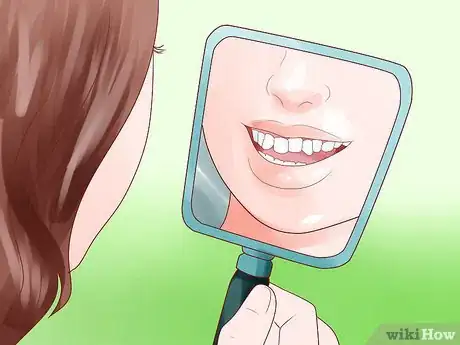
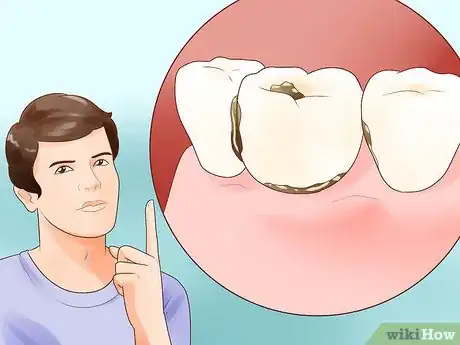
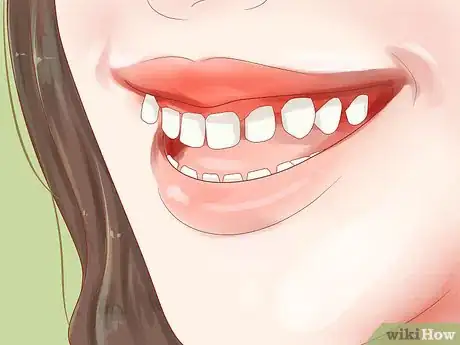
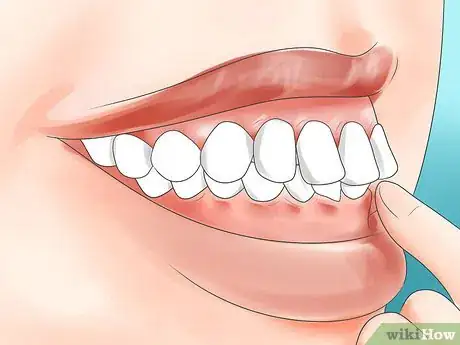

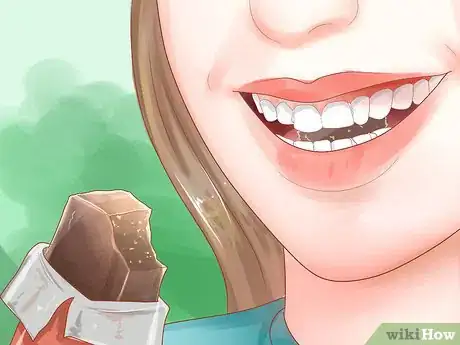
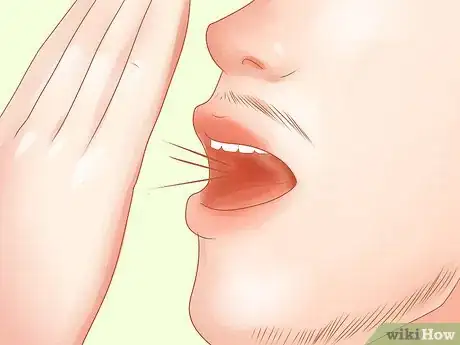
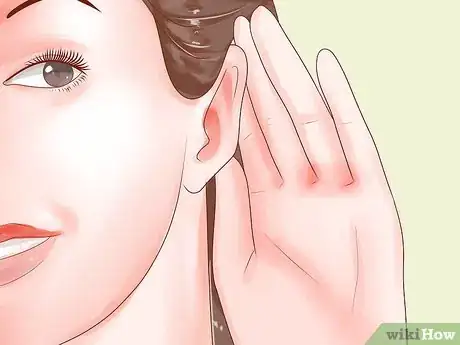
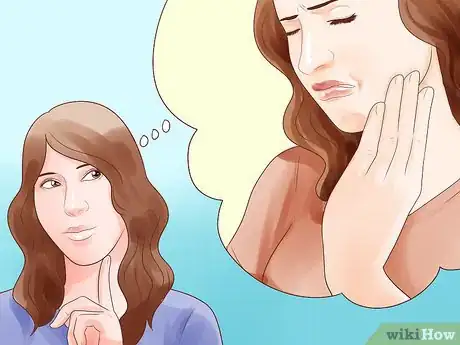
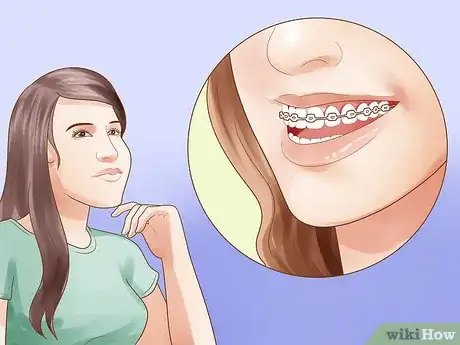
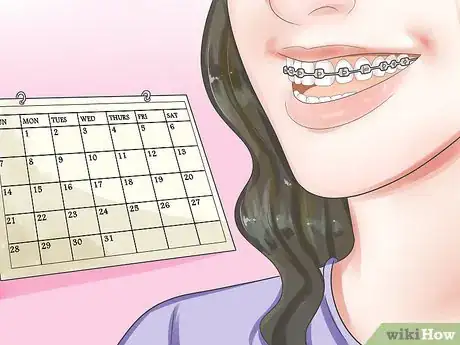




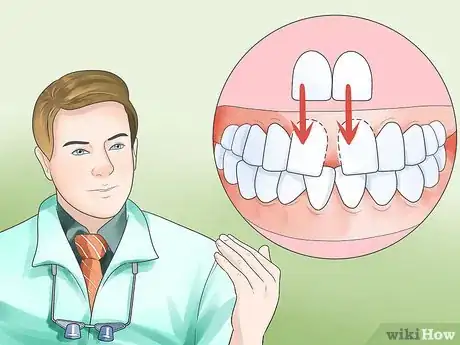
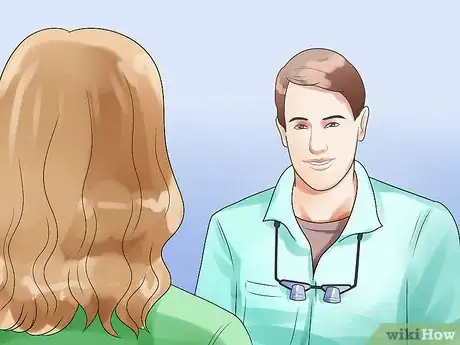
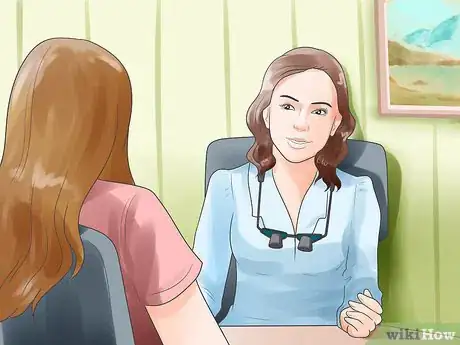
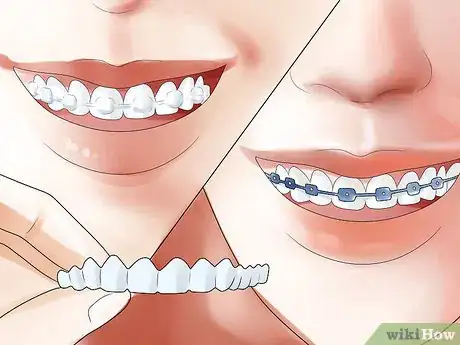
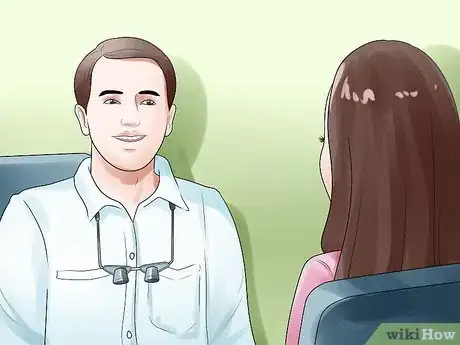
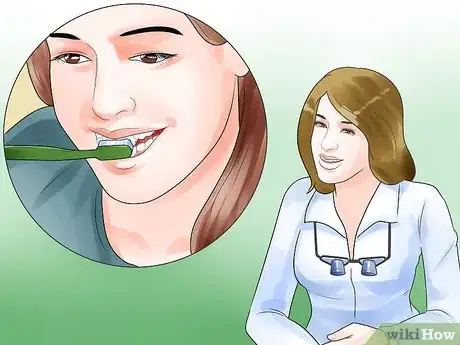
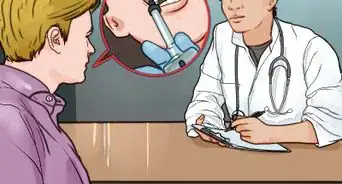

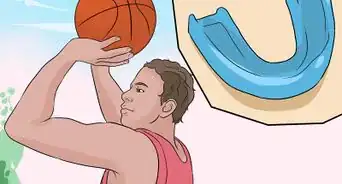
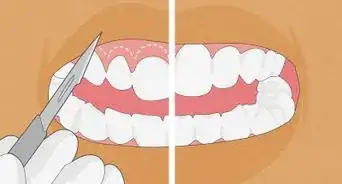
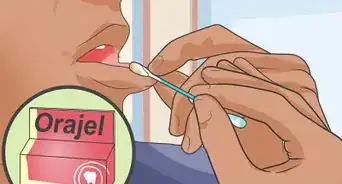

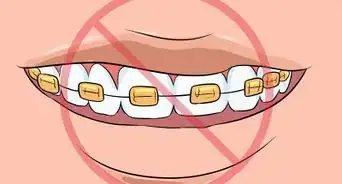
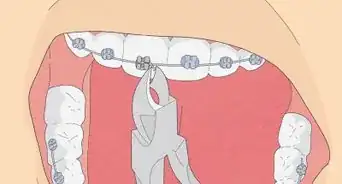
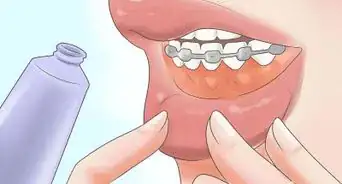
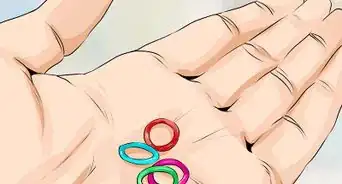
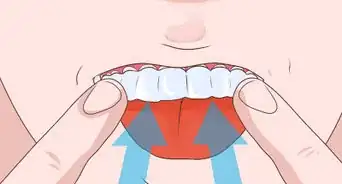
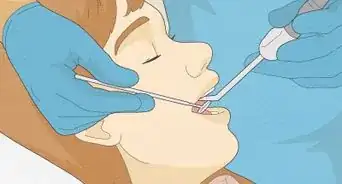
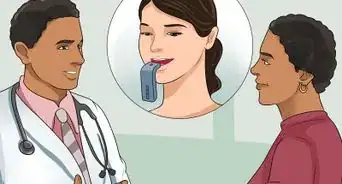
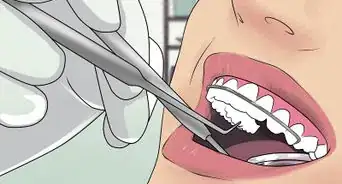









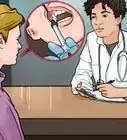
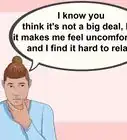

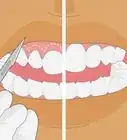



































Medical Disclaimer
The content of this article is not intended to be a substitute for professional medical advice, examination, diagnosis, or treatment. You should always contact your doctor or other qualified healthcare professional before starting, changing, or stopping any kind of health treatment.
Read More...